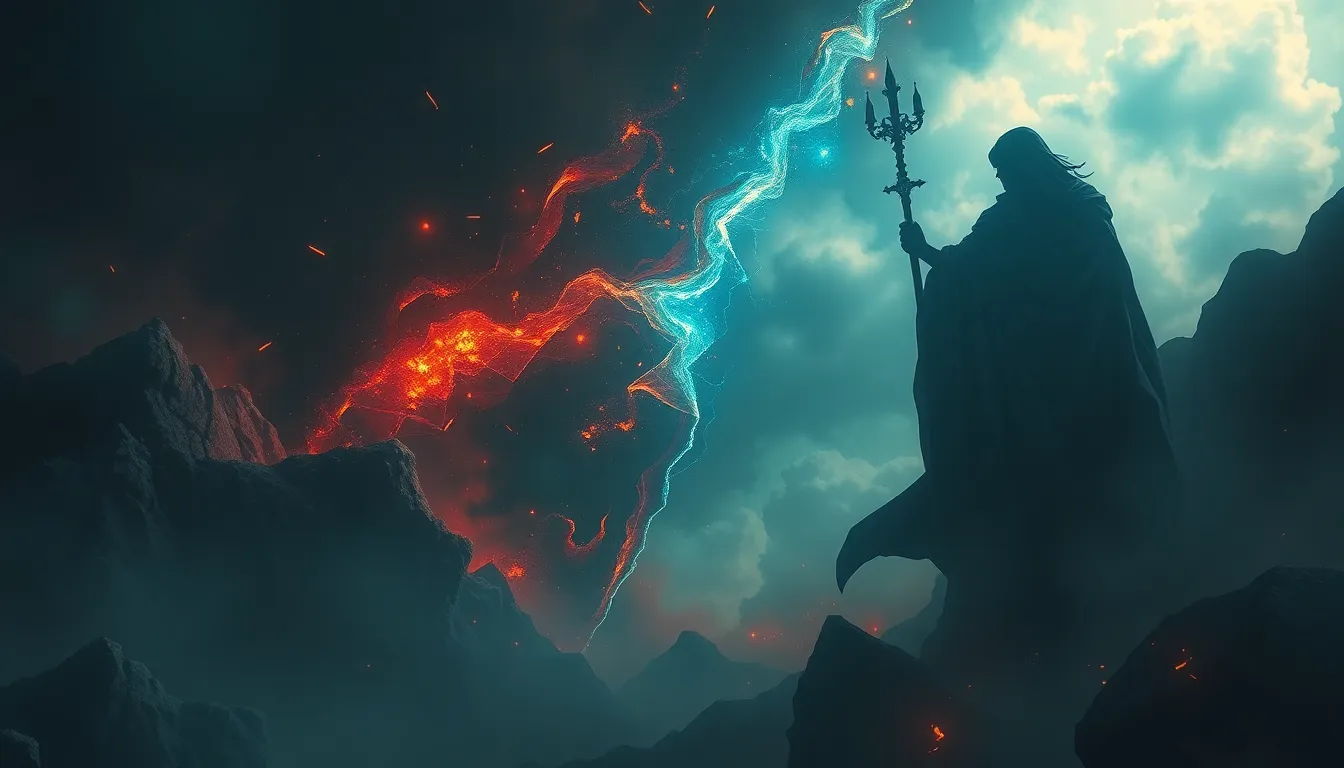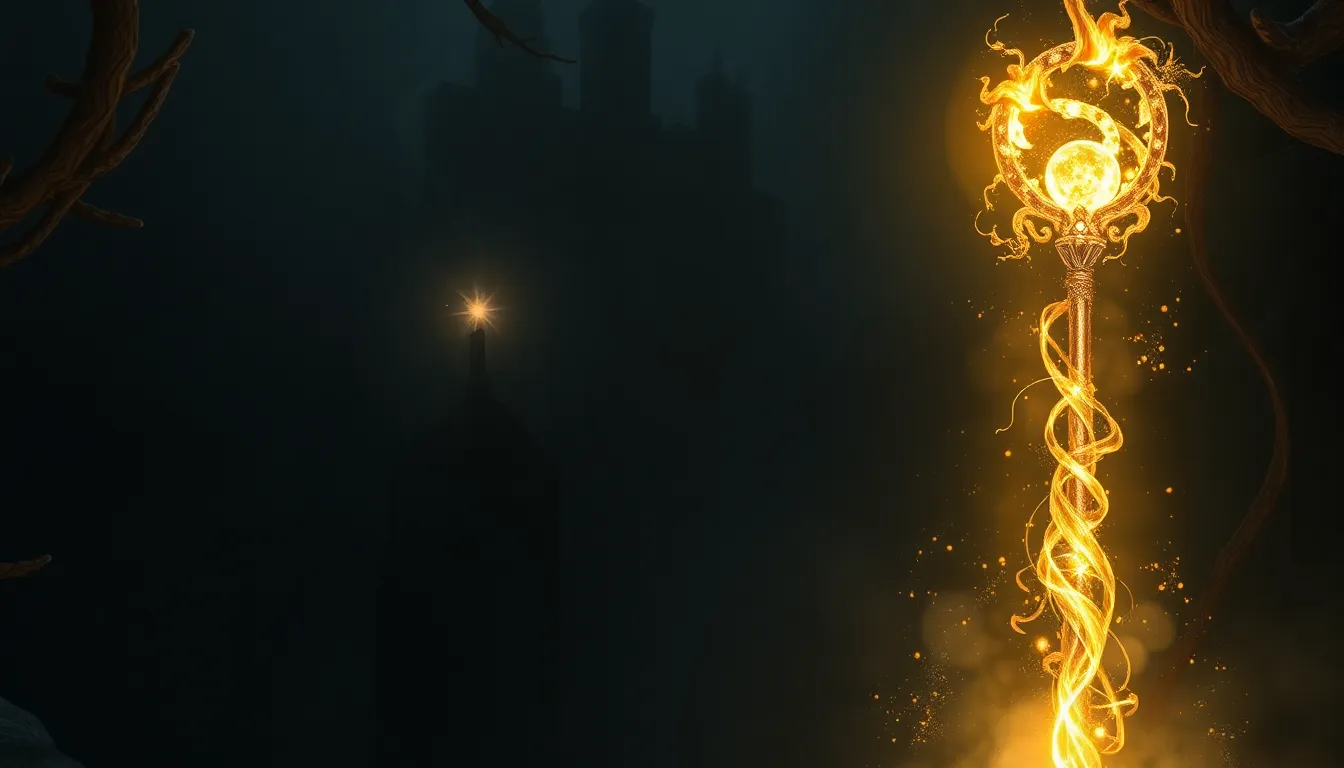The Myth of the Great Divide: Morality in Conflict
I. Introduction
The term “The Great Divide” often evokes images of stark contrasts and irreconcilable differences, particularly in morality. It suggests a binary opposition between right and wrong, good and evil. However, the complexity of morality transcends this simplistic dichotomy.
This article explores the concept of morality in conflict, aiming to unravel the intricacies that lie beneath surface-level perceptions of moral divides. By examining various historical contexts, philosophical perspectives, and contemporary issues, we seek to illuminate the multifaceted nature of morality and the possibility of understanding beyond binary oppositions.
II. Historical Context of Moral Divides
Throughout history, moral divides have often manifested in significant events that shaped societies. These events illuminate perceived moral conflicts:
- The American Civil War: A clash between the moral beliefs surrounding slavery and human rights.
- The French Revolution: A struggle for liberty and equality against tyranny.
- World Wars: Conflicts fueled by differing ideologies and moral understandings.
Philosophically, moral dualism has roots in ancient thought, where philosophers like Plato and Aristotle discussed the nature of good and evil. This dualism laid the groundwork for later moral theories that often pit opposing values against one another.
Religion has played a pivotal role in shaping moral conflicts, providing frameworks that dictate right and wrong. For example, differing religious teachings have often led to tensions and conflicts throughout history, as seen in the Crusades and the Reformation.
III. The Nature of Morality: More than Right and Wrong
Morality is not merely a black-and-white concept. It is essential to examine the two dominant perspectives: moral relativism and moral absolutism.
Moral relativism posits that moral judgments are dependent on cultural, social, or personal circumstances. In contrast, moral absolutism argues that there are universal moral truths applicable to all individuals, regardless of context.
Psychological perspectives on moral decision-making reveal that people often rely on emotions, intuition, and social cues, rather than strict logic. This subjectivity underscores the importance of cultural context, as moral judgments can vary widely between different societies.
IV. Case Studies: Morality in Conflict
To illustrate the complexities of morality, we can look at several contemporary case studies:
- Political Polarization: In many democracies, political beliefs are intertwined with moral convictions, leading to severe divisions and a lack of understanding between groups.
- Environmental Ethics: Conflicting interests arise between economic development and environmental protection, often rooted in differing moral frameworks regarding the treatment of the planet.
- Social Justice Movements: Movements like Black Lives Matter and LGBTQ+ rights showcase diverging moral perspectives, where advocates face opposition rooted in differing values and beliefs.
V. The Role of Narrative in Shaping Moral Perceptions
Narratives play a crucial role in shaping our understanding of morality. How stories are told can significantly influence moral perceptions.
- Media Representation: The media frames moral issues in particular ways, affecting public perception and understanding.
- Personal Narratives: Individual stories create empathy and connection, often bridging divides by highlighting shared human experiences.
By understanding the power of narrative, we can better appreciate how moral perceptions are constructed and how they can be transformed.
VI. The Intersection of Morality and Identity
Cultural, ethnic, and national identities significantly shape moral viewpoints. These identities create frameworks through which individuals interpret moral issues.
Groupthink can exacerbate moral conflicts, as individuals conform to the prevailing views of their community, often disregarding alternative perspectives. Furthermore, the concept of intersectionality helps us understand that individuals can hold multiple, sometimes conflicting, identities that influence their moral beliefs.
VII. Bridging the Gap: Dialogue and Understanding
Fostering productive moral discussions is essential in overcoming perceived divides. Techniques to enhance dialogue include:
- Creating safe spaces for discussion.
- Encouraging diverse viewpoints.
- Practicing active listening and empathy.
Successful examples of moral reconciliation, such as Truth and Reconciliation Commissions, showcase the potential for dialogue to heal divisions and foster understanding.
VIII. The Role of Education in Navigating Moral Conflict
Education plays a vital role in helping individuals navigate moral complexities. Key elements include:
- Teaching Moral Philosophy: Introducing students to ethical theories can equip them with tools for critical thinking.
- Encouraging Critical Thinking: Promoting inquiry and debate fosters nuanced moral reasoning.
- Community Initiatives: Educational programs aimed at promoting understanding and cooperation can enhance community cohesion.
IX. Future Implications: Shifting Perspectives on Morality
As society evolves, so does the understanding of morality. The globalized world presents new challenges and opportunities for moral discourse:
- The increasing interconnectedness allows for cross-cultural exchanges that can enrich moral perspectives.
- Emerging moral frameworks may address contemporary issues such as climate change, technology ethics, and human rights.
- Technology and social media play a dual role, acting as platforms for dialogue while also creating echo chambers that can entrench divides.
X. Conclusion
In summary, the myth of the great divide oversimplifies the intricate landscape of morality. By exploring the historical context, philosophical perspectives, and contemporary case studies, we can appreciate the complexity of moral conflicts.
Ultimately, fostering understanding through dialogue, education, and empathy is crucial in navigating these moral intricacies. As we move forward, it is essential to remain open to evolving perspectives that reflect the diverse realities of our interconnected world.



